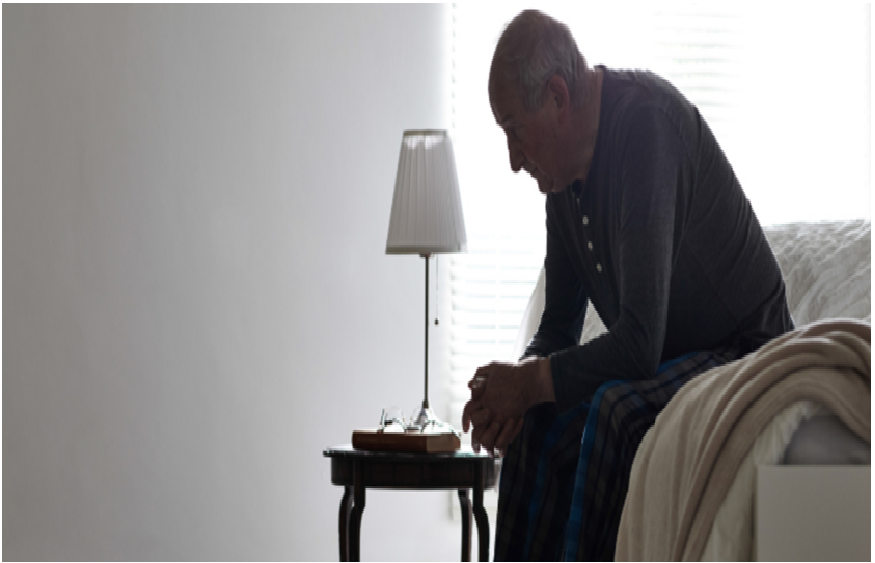How to Get Better Sleep with Parkinson’s Disease

Parkinson’s disease causes a wide range of symptoms, including a deep level of fatigue that can make even simple tasks feel insurmountable. In addition to the physical and mental fatigue patients with Parkinson’s disease can experience, sleep doesn’t always come easily, making exhaustion all the more frustrating.
The Importance of Sleep
Everyone requires consistent, high-quality sleep to function at their best. In addition, sleep is a critical component of many brain functions, including creating and maintaining the pathways that form memories, facilitating learning, and helping brain neurons to communicate with each other.
However, quality sleep is even more critical for patients with Parkinson’s disease. Since Parkinson’s disease affects the brain’s neurons, sleep’s restorative and repairing benefits to the brain are critically needed.
Poor sleep is often one of the first symptoms of Parkinson’s disease, and many patients struggle to fall and stay asleep well before they receive their Parkinson’s diagnosis.
What Causes Disrupted Sleep in Parkinson’s Patients?
Up to two-thirds of Parkinson’s patients struggle with disrupted sleep. Several issues explain the sleep disruptions common for Parkinson’s patients, including:
- Leg movements or restless leg syndrome
- Medication side effects
- Difficulty moving in bed
- Vivid noctournal hallucinations
- Frequent nighttime urination needs
- Circadian rhythm disruptions
- REM sleep behavior disorder
- Obstructive sleep apnea
Parkinson’s patients often struggle to fall or stay asleep and may experience anxiety and depression around their insomnia. Additionally, sleep disturbances can contribute to the cognitive decline of Parkinson’s patients.
How to Sleep Better with Parkinson’s Disease
For patients struggling with sleep disruptions and Parkinson’s disease, the simplest way to resolve sleep issues is with better sleep hygiene. Sleep hygiene refers to habits and practices that contribute to consistently better sleep. Habits that can improve your sleep hygiene include:
- Maintaining a regular sleep schedule
- Setting your sleep schedule to ensure seven to eight hours in bed
- Following a consistent bedtime routine
- Exercising outdoors in the morning hours
- Not reading or watching TV in bed
- Avoiding alcohol, caffeine, and tobacco
- Minimizing drinking liquids three hours before bedtime to limit nighttime urination
- Creating a cool, dark, comfortable sleeping environment
Patients whose sleep remains fragmented or disrupted despite improved sleep hygiene should see a sleep specialist to determine whether their sleep problems result from sleep apnea, REM sleep behavior disorder, or another sleep-related concern.
A sleep specialist may also prescribe medications or sleep aids, like a CPAP machine, that can help facilitate quality sleep. When working with a physician to understand and treat sleep problems, keeping a log or diary of your sleep patterns can serve as a beneficial tool in tracking your periods of wakefulness.
Additionally, your sleep diary can track the factors that may disrupt your sleep, such as your napping and exercise schedule, the foods and drinks you consume, and any activities occurring near bedtime.
This post was written by a medical professional at Stemedix Inc. At Stemedix we provide access to Regenerative Medicine also known as Stem Cell Therapy. Regenerative medicine has the natural potential to help improve symptoms sometimes lost from the progression of many conditions.






